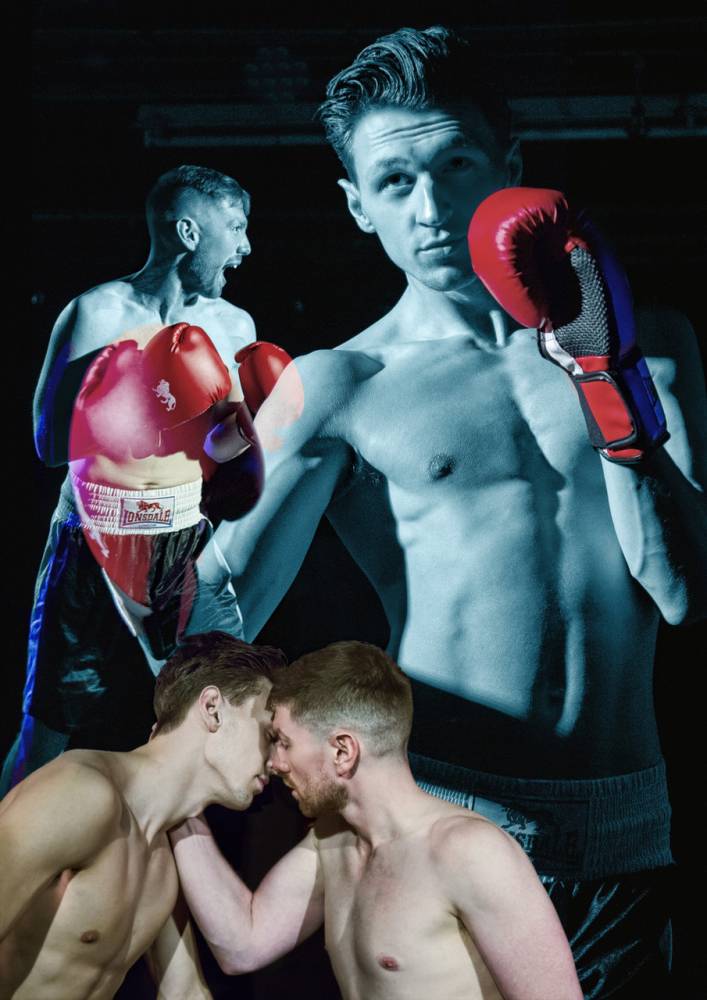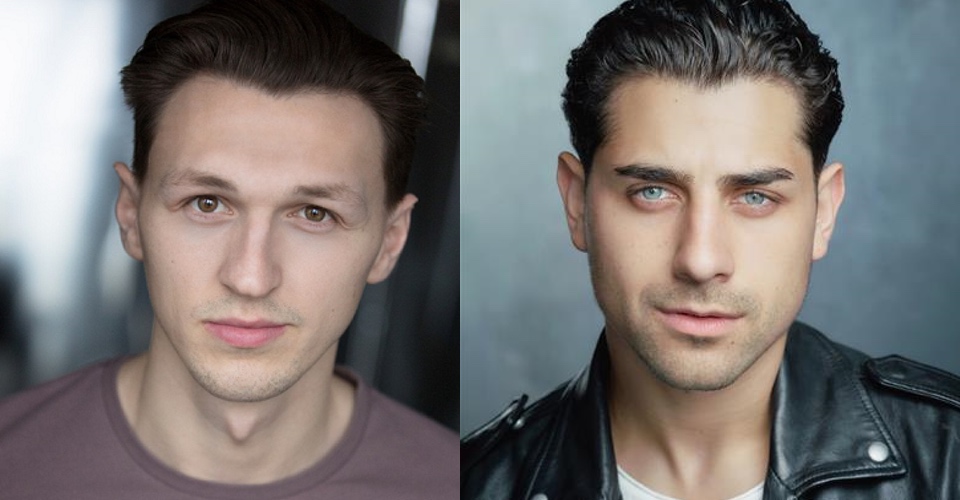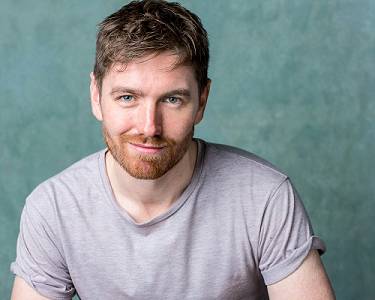Can two men raised to fight ever learn to love?

Gypsy Queen, a play by writer and actor Rob Ward is about just that, and looks at how social and cultural expectations within the boxing world and the Travelling community impact on two of the sports best fighters. With homophobia in sport still in the spotlight and with more sportsmen starting to come out, THEGAYUK chatted to Rob about his play, what he feels would benefit gay athletes, putting theatres in gyms, and how a headscarf can change everything.
TGUK – Thank you for chatting to us Rob. To start with, can you tell us what Gypsy Queen is about?
RW – It is fundamentally a gay love story about two men who meet in, and come from, worlds which as far as sexuality is concerned, are two of the most difficult. They are both boxers, and both are in the midst of a testosterone fuelled environment as they fall in love and have to keep their love secret from their family, trainers and the media. The play looks at modern day masculinity; but for one of them, “Gorgeous” George O’Connell, he also has to contend with his traveller background, which is a community where attitudes towards homosexuality, masculinity and religion all combine. All of these elements come together to create discussions points arising from the play, but ultimately, and at its heart, it is a good humoured love story.
TGUK – And where did the story come from?
RW – A few years ago, boxer Tyson Fury made a number of comments about the gay community, appearing to conflate abortion and homosexuality with paedophilia and saying homosexuality will contribute towards the end of the world. At the time, I had a short 10 minute play about two gay boxers and I was trying to find way of expanding the story when Tyson Fury made his comments. I wondered why he was so hung up on people being gay, and I thought “what if he is gay himself?”, and this led to opening up of the character I now have in the play. At the time, there were calls for the BBC to remove Fury from the Sports Personality of the Year shortlist that year, but they didn’t. I really wanted there to be a reflection of this in the play. The media have a certain responsibility in my view, and there was a real sense of public feeling that the BBC were holding him out as a role model, when actually he should have removed him from the shortlist for his comments.
TGUK – There is a real issue with homosexuality in mainstream sport, how does Gypsy Queen address that?
RW – It’s really important to tell this story; it is about having gay sporting role models. I am interested in writing about outsiders, and for me growing up as a sports fan, I saw no gay role models in that world. I was brought up in a very sporting family. I was in a very male dominated world during my upbringing, I went to an all-boys school, I was in a family which were very sporty, and for me it was incompatible to be into sport and be gay. Things are very slowly changing. There are people like Tom Daley and Gareth Thomas who have come out, but there are few openly gay professional sportsmen.
Looking at the boxing world, there are still many homophobic comments made. There are still no out footballers in the UK – you still get incidents of homophobia in football; recently a Chelsea fan was suspended for making homophobic chants at an away match in Brighton. Last year, we had an ex-professional German [football] player come to see the show. He told us that he had come out after he had retired, even though he was playing as late as 2012 or 2013. He talked about how he kept his sexuality secret because of a lot of locker room banter from players; and homophobic comments being freely and openly made; for example, he spoke about how one of the other players was having a massage session with a physiotherapist, who said “if you were gay, I wouldn’t be letting you touch me”.
TGUK – What do you think is needed in professional sport to address the issue of sexuality?
RW – We have initiatives like Stonewall Rainbow Laces, but campaigns like these don’t get the mass media coverage which is needed, and you have clubs turning schemes like this down. It is almost like some clubs are paying lip service to the issue. There is a real need for change and it has to come from the boardrooms. There is, in my view, a real lack of understanding of diversity in sport, and the powers that be in the sporting world need to get to grips with it to affect long term positive change.
TGUK – This is the third tour for the show; was coming back to it like slipping back into a well-worn pair of boxing gloves?
RW – Absolutely. We are just about finishing rehearsals, and in respect of the main show we were able to get up to speed with it quite quickly; but this time round we have a special performance in a boxing gym in Manchester, and for this, we have planned a family friendly version of the show so that some younger members of the gym can come to see the play. Doing a toned down version has been interesting, as we have had to cut out the swearing and the nudity for that one show; and it is often difficult to avoid going into auto-pilot and sticking to the original script which contains both.

TGUK – So in terms of the main play, has it changed much from previous tours, and is there anything new for people who have seen the show before?
RW – The show has developed over the years. Early in the initial tour, when we had been able to gauge the reaction of an audience, we did develop some aspects of the play further to reflect how people had reacted, and to look at what worked well and what needed revisiting. As with any new piece of writing, you often never quite get the sense of how a scene works until it is in front of an audience, and so throughout the 2017 tour, and into the summer of that year at the Edinburgh Fringe, we got the show to where we were happiest with it. On this tour, we have had a great actor by the name of John Askew join us for part of the tour and when he came into rehearsals, he had some fresh ideas and suggestions. As a writer and a performer, I like rehearsals to be collaborative; you want people to express their opinions on things. It’s really useful to get a second perspective. We had it nailed down with Ryan Clayton, who will be sharing the role with John; but when John first came into the rehearsal room, there were some tweaks and changes, so in many ways, there has been a constantly evolving process with the play.
TGUK – What type of reaction have you had from the travelling community and the boxing community?
RW – One of the things we hope to achieve is to reach out to new audiences. The travelling community is difficult to access, but we have reached out to a travelling community in Newport, and we are hoping that they are able to come to the play.
It was really interesting, as when we were performing in London, we had a gay traveller come along to the show and he spoke with us afterwards, saying how one of the things he liked most about the show was the realism of it. He was a writer for the Traveller Times, and he had previously written about the how the comments made by Tyson Fury historically did not represent what Traveller men are like; he said that there was an image portrayed by the media in terms of the travelling community, and that in the play, whilst there are displays of masculinity and homophobia in the community, there is the possibility for individuals to be different and for them to move away from what has been the dominant view of the community historically.
We do try to show balance within the portrayal of the Travelling community, there is toxic masculinity and an old school catholic view, but it is important to show that not everyone subscribes to that mind-set. In terms of the boxing community, it has been very difficult because when you play theatres, you appeal to certain audiences; which are why on this tour, we are trying to reach out to gyms and groups with a sporting interest. This tour is the first time we are taking the show into a gym, and I’m really looking forward to seeing how they react. We have had people in theatres leaving when the two lead characters started kissing, but during the first run we did in Edinburgh, a friend was in the audience and told us that there were two Irish lads behind him who came out of the theatre saying “I wasn’t expecting that, I thought it was just about boxing, but it was alright that”.

TGUK – Gypsy Queen has just two actors playing multiple roles. Was that a creative choice or more to do with the financial constraints of putting on a new piece of theatre?
RW – Initially, one of the themes of the play was to question “what is masculinity” and I liked the idea of two actors playing cocky, Northern, hard lads who, with something as simple as putting on a different shirt or a headscarf, transform into the camp boyfriend or the foul mouthed mother. As a general style, I have always liked seeing people playing multiple roles, as it is quite theatrical and, for the performer, it’s quite fun and playful. I ultimately want my writing to be fun to watch and fun to perform; and I think that the audience also enjoy spotting the visual cues about which character is coming on stage next. I liked the juxtaposition and thought it would be really interesting to go from these hard boxers to these softer characters, but as the show develops, you see that the characters that appear to be the softer, more gentile ones, such as Dane, the camp, flamboyant boyfriend, are actually incredibly strong in their own right, and this is reflected in how the story develops.
TGUK – Gypsy Queen is heading out on tour now, but what plans are there for the show after that?
RW – We are really excited to be taking the show to Canada and have just had confirmation of the booking there. We would like to tie this in the USA as well; so from a theatre point of view, we would like to get the show touring the US and Australia. We are also looking at the possibility of a screenplay for the show, so that is incredibly exciting in itself. But for now, our focus is on the current tour and putting everything we have at it to make it a piece of must see theatre for not just the gay community but also the wider community.
Gypsy Queen is now on national tour, details of which can be found at www.gypsyqueentour.com

YOUR SUPPORT MEANS EVERYTHING
Help us deliver unique, usable and reliable journalism that supports the gay, bisexual and curious community of the United Kingdom. Can you help protect LGBT+ media? Publishers like us have come under severe threat by the likes of Google and Facebook. The problem is that advertisers are choosing to put their money with them, rather than with niche publishers like us. Our goal is to eliminate banner ads altogether on site and we can do that if you could pledge us a tiny amount each month.
We’re asking our readers to pledge just £1 per month, more if you’re feeling swanky. You can stop payment at any time.
It’s quick and easy to sign up and you’ll only have to do it once.
